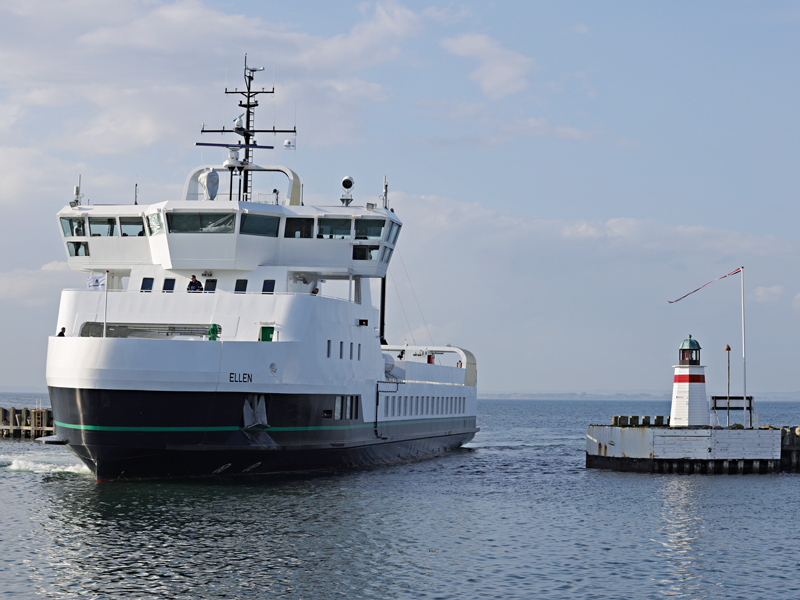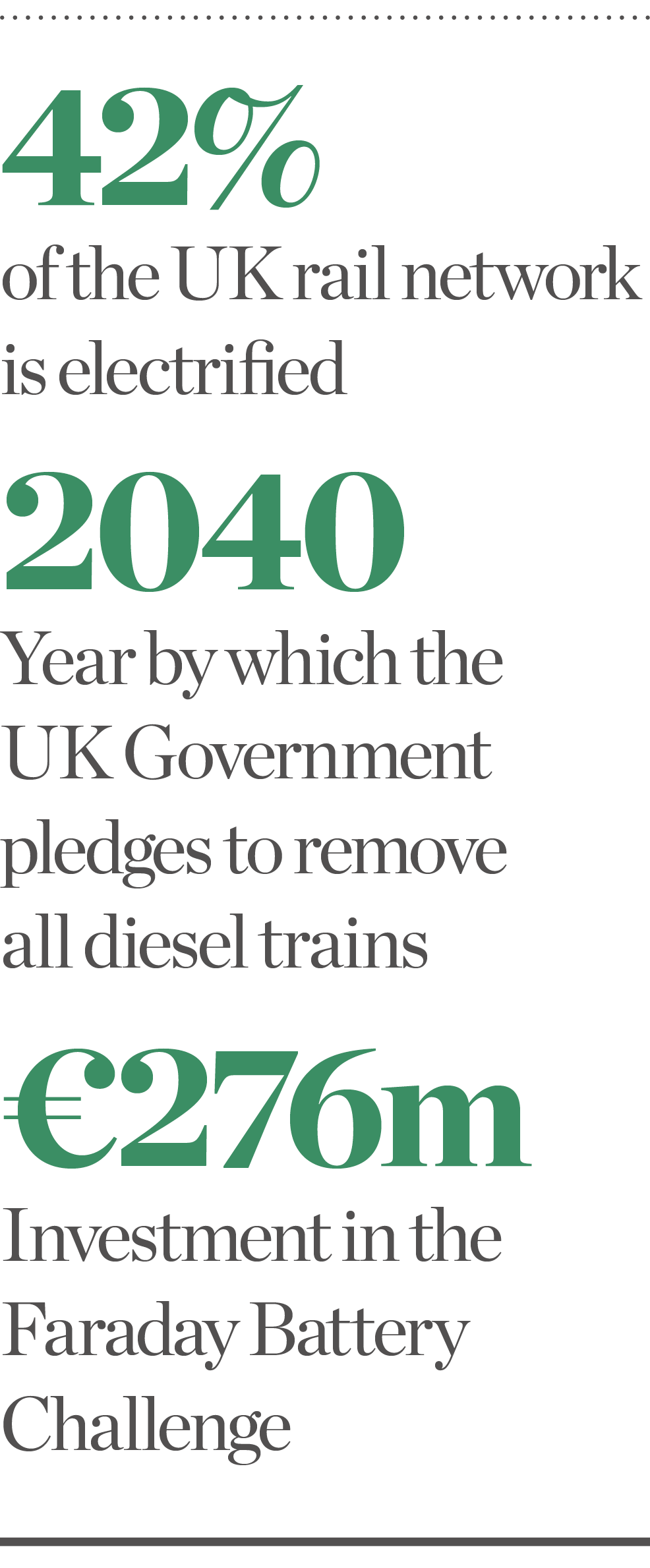
At a time when the transport industry is under more pressure than ever to decarbonise, the opportunities for European battery companies are huge. There are two main issues to contend with, however: harmful emissions must be cut, and electricity grids need to reduce their dependence on non-sustainable energy sources.
Leclanché is active in both of these areas, powering the electrification of transport through our batteries and accelerating the integration of renewable energy into the grid through our stationary storage solutions. New emissions regulations are set to be a key driver of growth over the next decade, while our energy storage solutions across fleet transportation and electricity grid management continue to be in high demand.
While it is undeniable that Asia was first out of the blocks in industrialising battery technology, Europe is catching up fast
Catching up
To create a more sustainable battery value chain, we must take a four-pronged approach. First, we need more European-headquartered companies with not only design and process know-how, but assembly lines too. Second, we need to standardise Europe’s e-vehicle charging infrastructure. Third, comprehensive EU policies governing the transport and electricity markets are vital. Last, but by no means least, we need to build a skilled workforce.
While it is undeniable that Asia was first out of the blocks in industrialising battery technology, Europe is catching up fast. Leclanché is investing in research and development to ensure our lithium cell energy density is on a par with, if not superior to, that of Asian manufacturers. Further, our in-house cells for medium to high-power applications are already competitive in terms of cost. That said, the issue of cost competitiveness with the Asian market shouldn’t be ignored. Strategies to ensure Europe is keeping up need to be developed at both company and government levels.
Delivering tailor-made solutions that meet the exact specifications of clients is another major factor determining Europe’s success in the industry. Clients come to Leclanché because we can manufacture and test at any scale in Europe, deliver solutions that work and provide fast, high-quality after-sales service.
Charging ahead
While many sectors are embracing green technology as the world moves towards a low-carbon future, the biggest drivers of innovation in battery technology are electric vehicles – fleets in particular, as well as stationary storage and robotics. Our electric vehicle focus is on fleets, including marine vessels, trains and commercial vehicles such as buses and trucks, which generate far more pollution than passenger cars.
In the marine sector, our batteries improve efficiency, reducing the environmental impact of all vessel types, including ferries, tugboats and container ships. In rail, rechargeable lithium-ion batteries are shaping the future of the industry. Battery-powered trains can replace those powered by diesel, with the advantage that they don’t require the installation of overhead cables or electrified tracks like electric trains do. In the UK, only 42 percent of the rail network is electrified, meaning many trains currently have to run on diesel. However, the government has pledged to remove all diesel trains by 2040.
As for commercial vehicles, we tailor our batteries to suit whatever journey fleets are required to make. For example, we can produce smaller capacity on-board battery packs for city buses, smartly coupled with infrastructure that includes fast charging and battery swapping stations. Energy storage solutions play a crucial part in our progress towards a clean-energy future. The electrification of transport reduces society’s reliance on dirty fuels such as diesel, but equally important are changes to the management of our electricity networks. This is where Leclanché’s stationary storage solutions come in: energy storage adds vital stability to the grid, benefitting operators and users alike. Strategically discharging power during periods of peak demand can alleviate the strain on the grid and reduce energy users’ exposure to high-demand charges. It also means we are less dependent on non-renewable power sources such as nuclear and coal.

For example, we have just signed an agreement with the state-owned electricity company of Saint Kitts and Nevis to deliver the largest solar-generation and energy storage project in the Caribbean. It will provide the residents of these islands with a reliable and renewable clean energy source, as well as fixed cost savings compared with the current diesel-generated power system.
Leclanché’s storage systems are customised to suit any application, whether it’s marine vessels or buses. Our speciality battery business demonstrates the company’s ability to develop storage solutions for highly sophisticated applications. From automated guided vehicles to robots and defence applications, we design and manufacture specialised, custom-made, low-voltage battery systems for a wide range of clients. Our battery housings and charging equipment are designed on a case-by-case basis to ensure the best possible fit for each user.
Leclanché provided the groundbreaking battery system for Ellen, the world’s largest all-electric ferry, which made its first commercial trip on August 15. We are very proud to have designed and certified a unique lithium-ion battery system for the ferry and to be contributing to the fight against pollution and global warming.
Supporting development
When I joined Leclanché in 2014, the company had invested heavily in developing new battery cells but did not yet have finished battery packs. Nobody buys just a cell – they buy a battery pack, which requires a management system too. So we set about developing an in-house battery management system that prevents overcharging, deep discharging, short circuits, and operating over and under voltage and temperature. We also developed energy-management system software that controls large grid-connected battery storage. Finally, we made the strategic decision to manufacture in Europe so that we could be closer to our European clients.
In a move to ensure that Europe doesn’t become dependent on Asian companies for its battery technology, the European Commission is now offering financial support to cell manufacturers. Under the criteria of the Important Projects of Common European Interest, EU member states will be able to support research and innovation, as well as the first industrial deployment of projects. The aim is to support companies in the high-risk phases of new technology deployment and allow private investors to step in with a clearer long-term view.
Our battery housings and charging equipment are designed on a case-by-case basis to ensure the best possible fit for each user
In 2017, the UK Government launched a much-needed £246m (€276m) initiative known as the Faraday Battery Challenge, aimed at establishing the UK as a world leader in battery technology. As well as helping several research and development projects get off the ground, the investment has been used to set up an independent national battery research institute. Surging demand for battery technology in Europe is increasingly seen as an opportunity for the private sector, with institutional investors, venture capital funds, energy providers and car firms investing in the industry.
I would love to see European players dominate the battery market alongside competitors in Asia. To achieve this, we need a coherent industrial strategy, agreed upon by European governments. So far, the focus in Europe has been on electric passenger vehicles. The next step will be to see more investment in battery technology for fleet vehicles, which would have a significant impact on improving air quality.
Of course, the education and training of the right people with the right skills is crucial to the future of our industry. We need more engineers who understand the intersection of electrochemistry and the software that is needed to manage storage devices – there are too few with this know-how in Europe today. Leclanché is doing its bit to address this issue through our partnership with the University of Warwick, and we are also working with several Swiss and German universities to push Europe’s battery sector forward.

